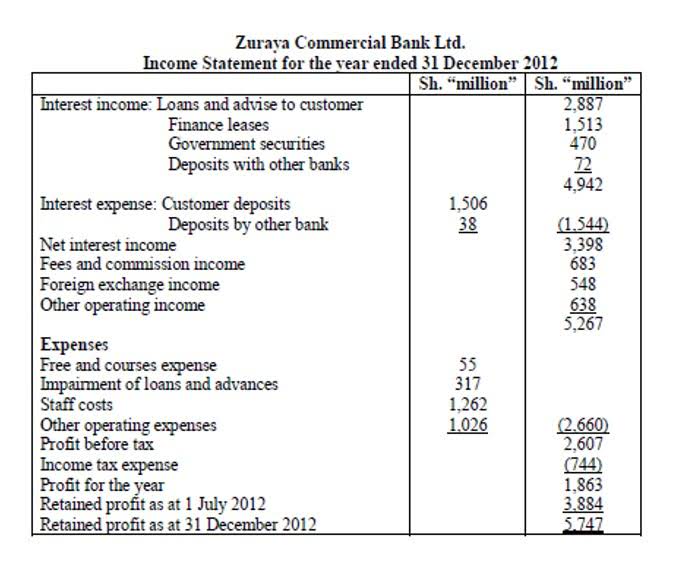
With full, consistent, and accurate records, it enables users to assess the performance of a company over a period of time. Uncollected revenue is revenue that is earned during a period but not collected during that period. Such revenues are recorded by making an adjusting entry at the end of the accounting period. Management accounting is about collecting data, analyzing it and then compiling it into financial reports that people in leadership positions can use to make better business decisions. Cost accounting is a kind of identify the two main categories of accounting principles. managerial accounting dealing with the cost structure of the business.

Periodicity Assumption
With cash accounting, expenses are incurred but revenue isn’t recognized until the customer pays. So, the accounting book of the company would look weak until the revenue actually came in. If this company was looking for debt financing from a bank, for example, the cash accounting method makes it look like a poor bet because it is incurring expenses but no revenue. In cash accounting, a sale is recorded when the payment is received and an expense is recorded only when a bill is paid. Most people use cash accounting for personal finances, and it’s suited for smaller businesses.
What Are the 2 Accounting Methods?
When every company follows the same framework and rules, investors, creditors, and other financial statement users will have an easier time understanding the reports and making decisions based on them. The purpose of adjusting entries is to assign an appropriate portion of revenue and expenses to the appropriate accounting period. By making adjusting entries, a portion of revenue is assigned to the accounting period in which it is earned, and a portion of expenses is assigned to the accounting period in which it is incurred. The main categories of accounting include financial accounting, management accounting, and cost accounting. Financial accounting focuses on recording and reporting financial information for external users.
Identify the two main categories of accounting principles. What do accountants mean by the term…
Generally Accepted Accounting Principles are important because they set the rules for reporting and bookkeeping. These rules, often called the GAAP framework, maintain consistency in financial reporting from company to company across all industries. Revenue Recognition Principle – requires companies to record revenue when it is earned instead of when it is collected. This accrual basis of accounting gives a more accurate picture of financial events during the period. Historical Cost Principle – requires companies to record the purchase of goods, services, or capital assets at the price they paid for them. Assets are then remain on the balance sheet at their historical without being adjusted for fluctuations in market value.
- For example, the current ratio compares the amount of current assets with current liabilities to determine how likely a company is going to be able to meet short-term debt obligations.
- This type of accounting is essential in legal matters, especially when fraud is suspected.
- GAAP encompasses a set of principles, concepts, and standards established by accounting standard-setting bodies.
- This specialized accounting service is trending in accounting and is becoming increasingly popular.
- Specialized fields in accounting have emerged as a result of economic, industrial, and technological developments in business.
- (The depreciation journal entry includes a debit to Depreciation Expense and a credit to Accumulated Depreciation, a contra asset account).
- Yes, changes in accounting principles can impact financial statement analysis.
- Examples of fiduciary accounting include trust accounting, receivership, and estate accounting.
- Accounting principles, such as GAAP or IFRS, are standards set by regulatory bodies that public companies must adhere to for financial reporting disclosures.
This account balance or this calculated amount will be matched with the sales amount on the income statement. A sole proprietorship is a simple form of business where there is one owner. However, for accounting purposes the economic entity assumption results in the sole proprietorship’s business transactions being accounted for separately from the owner’s personal transactions. The full disclosure principle requires that sufficient financial information be presented so that an intelligent person can make an informed decision. As a result of this principle, it is common to find many pages of notes to the financial statements. Materiality also allows for a mid-size company to report the amounts on its financial statements to the nearest thousand dollars.
If a business event occurred that is so insignificant that an investor or creditor wouldn’t care about it, the event need not be recorded. Here’s a list of more than 5 basic accounting principles that make up GAAP in the United States. I wrote a short description for each as well as an explanation on how they relate to financial accounting. It’s important to have a basic understanding of these main accounting principles as you learn accounting. This isn’t just memorizing some accounting information for a test and then forgetting it two days later.
- Here’s a list of more than 5 basic accounting principles that make up GAAP in the United States.
- Consistency is necessary to help external users in comparing financial statements of a given firm over time and in making their decisions.
- Accounting allows a business to monitor every aspect of its finances, from revenues to costs to taxes and more.
- It aligns with the matching principle and ensures expenses are properly matched with the related revenue.
- Investors may be deciding to buy shares in the company, while lenders need to analyze their risk in deciding to lend.
- Cost of goods sold is usually the largest expense on the income statement of a company selling products or goods.
Corporate and Business Law (LW)
Some of the accounting principles in the Accounting Research Bulletins remain in effect today and are included in the Accounting Standards Codification. However, due to the complexities and sophistication of today’s global business activities and financing, GAAP has become more extensive and more detailed. In this type of accounting, all records and reports are made according to regulations established by the tax authorities. Management accounting is useful to all types of businesses and tax accounting is required by the IRS. Tax accounting involves planning for https://gensofts.info/projects/rocket/cash-flows-from-investing-activities/ tax time and the preparation of tax returns. This branch of accounting aids businesses to be compliant with regulations set up by the IRS.


Understanding these principles can greatly benefit anyone involved in business operations, especially when considering the differences between accounting and other fields like engineering. These are the basic ideas or assumptions under the theory base of accounting that provide certain working rules for the accounting activities of an organization. There are 13 important Accounting Concepts that are to be followed by companies to prepare true and fair financial statements. Organizations must select an accounting method that accurately reflects their financial activities and adhere to it consistently unless officially approved for change. Large businesses must use accrual accounting if annual gross receipts exceed $25 million.

But, everyone in accounting believes that these concepts are self-evident. Business Entity Concept – is the idea that the business and the owner of the business are separate entities and should be accounted for separately. The amount of other comprehensive income is added/subtracted from the balance in the stockholders’ equity account Accumulated Other Comprehensive Income. Liabilities also include amounts received in advance for a future sale or for a future service to be performed. The concept of materiality means an accounting principle can be ignored if the amount is insignificant. For instance, large companies usually have a policy of immediately expensing the cost of inexpensive equipment instead of https://www.bookstime.com/articles/statutory-reporting depreciating it over its useful life of perhaps 5 years.

Financial Statements
The system of accounting helps to ensure that a company’s financial statements are legally and accurately reported. An accounting method details how companies report their revenues and expenses, with a focus on accrual versus cash accounting. Accrual accounting records transactions when they occur, while cash accounting handles them upon receiving or spending cash.